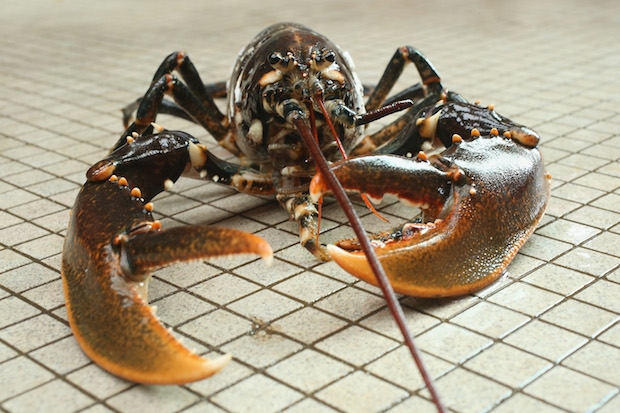A stint in dry dock — the ‘dry’ literally — has one advantage. There is time for lots of long reading. After many decades since the last opening of Middlemarch, I had forgotten how good it is. I had completely forgotten a delicious minor character, Mrs Cadwallader, who is a blend of Aunt Dahlia and Lady Circumference. A Marxist heedless of his safety might describe her as declining gentry. She would have rejected both words with scorn.
In those days, many Church of England livings were bestowed on parsons such as Mr Cadwallader, who needed the money to preserve their social status. ‘The C of E was always better at ministering to the deserving ex-rich than to the indifferent poor’: discuss.
Apropos of the former rich, I have been hearing stories about a sometime Northumbrian wine merchant, Calverley Bewicke; always known as Verley. He was, alas, the author of his own decline. Verley inherited houses, land and money. He had excellent taste and was an accomplished country-house cricketer. If Northumberland had been a major county, he might have played in the odd first-class match. But he also had a taste for horse racing. Although he was good at it — three Cheltenham Gold Cups — there was no gainsaying the old adage. ‘It is easy to make a small fortune on the Turf. You just have to start with a large one.’
Even as his fortunes faltered, he had a lot of fun, and bestowed it on others. One of his jockeys always said, ‘Spent a year riding for Mr Bewicke. Best year of my career — even if he never paid me.’
Other creditors were less tolerant. The horses were renounced, so Verley turned to another passion: wine. From a house in Sancerre, he did much to popularise that wine, and others of the region. He also devoted a lot of attention to the grapes of the Jura, including the formidable Château-Chalon.
One of his customers was often quoted. ‘Verley is a miracle. Most of the great wine tasters are desiccated characters who sniff, swirl, sniff again, then sip, savour and spit. Verley swigs the stuff for breakfast, yet I’d back his palate against anyone’s.’
He did not always drink wine for breakfast. The French barman on the 8.30 hovercraft would often try to intimidate English customers: ‘Blanc, rosé ou rouge?’ Verley had no need to order. The barman would already be pouring the vodka and tonic.
As his farm rentals declined — inevitable once he had sold the farms — Verley learned to live off local produce. The surplus was brought to London, where his customers delighted in the game, sea trout, mushrooms, his own personally slaughtered chickens, not to mention the live lobsters. When his car arrived and the doors were opened, there was always a scramble to prevent the lobbies legging it. He never bothered to put elastic bands round the claws.
One ungrateful crustacean made its way into the interstices of the vehicle. Verley protested: ‘I’m sure there were eight. Where’s the last one?’ He was accused of befuddled counting. The truth gradually and nasally emerged — and how.
Verley and his wife Marigold were impervious to the lobster’s revenge, because they both avoided driving on an empty stomach. Each of them had a car accessory screwed to the dashboard, in the form of a toothbrush mug holder which could contain a generous ration. Marigold would have filled them both before they had left the drive. A bottle-hardened head meant that Verley almost never drove when absolutely sloshed — and absolutely never when wholly sober.
Shocking, to a modern ear: although Verley lived until ten years ago, he sounds as if he ought to have been extinct when Miss Eliot was writing Middlemarch. Tasting some plunder one of his grandsons had brought back from the Rhône, we raised a glass and a chuckle to his memory.






Comments